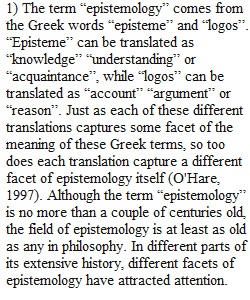


Q Please click on the link above to enter the forum. This is a post-first forum. You must create a thread and submit your answers before viewing other responses in the forum. Please DO NOT post a blank page to access the forum. Doing so will count against your grade. Review the syllabus for additional posting requirements. Your discussion assignment this week is to watch this 8-minute talk by Regent Professor Dr. James Henderson on Regent University’s Statement of Faith: https://www.regent.edu/video/home.cfm?address=8001174 In this video, Dr. Henderson describes what WE, the body of students, faculty, and staff, at Regent University, believe to be true about Christianity and how that relates to all of our work (including your work as students) at Regent University. Then respond to the following questions in the Discussion Forum. 1. Several times in the video, Dr. Henderson emphasizes that while we all share a common Christian worldview, that does not mean that we all necessarily agree about ALL OF THE SPECIFICS of our Christian faith. What specifically does he identify as issues or points where we might DISAGREE as Christians, while still sharing a common Christian worldview? 2. In our course introduction this week, you were introduced to the following terms: Epistemology – the study of knowledge, of what we know and how we know it, of what constitutes EVIDENCE for a belief. Ontology – the study of existence, and the classification of types of existence, of what is real, and the categories which exist among things Teleology – the study of endpoints, or the arcs which things take as they work themselves out to their logical ending • How does Dr. Henderson’s talk engage with the subject of epistemology? What does he say that we KNOW as Christians, and how do we know it? How does Regent University’s Statement of Faith reflect a Christian worldview epistemology? • What does Dr. Henderson say about “what is real,” and how is this Christian worldview understanding of reality reflected in Regent University’s Statement of Faith? • What specifically does Dr. Henderson say about the NARRATIVE ARC of SALVATION, and how does this relate to your understanding of the Christian worldview? Does he state that everyone at Regent knows “how the story ends” and do we all understand that story in the same way? • Dr. Henderson does not use the term VOCATION, but he suggests that we all have a role to play in salvation history - in our studies and in our work. How does his talk engage with the Christian worldview notion of vocation? • This week we learned about the term “sovereignty,” and learned that God is sovereign over the universe, though early rulers may also exercise sovereignty over their territories and borders. What does it mean to say that God is sovereign over Regent University and why does it matter? The primary post is due on Saturday. Replies and full participation in the discussion are due on Monday, 3/20.
View Related Questions